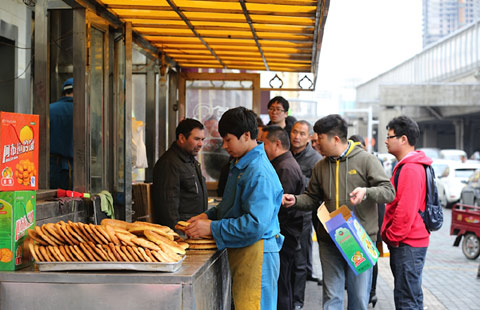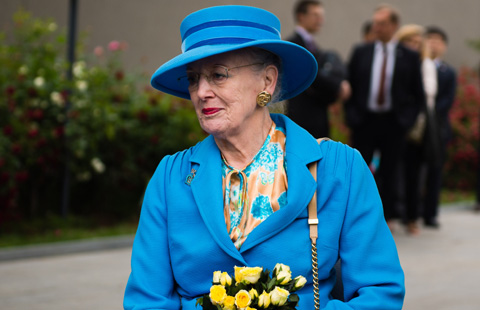Iraqis begin to vote in parliamentary elections
Updated: 2014-04-30 16:21
(Xinhua)
|
|||||||||||
BAGHDAD - Iraqis began to cast their ballots Wednesday morning in the parliamentary elections, the first since the withdrawal of US troops from the country ended in late 2011.
More than 8,000 voting centers across the country opened their doors at 7:00 am local time (0400 GMT) and were scheduled to close at 6:00 pm (1500 GMT).
Over 21 million Iraqis are eligible to vote for a new parliament, one they hope will bring change to the violence-shattered country.
More than 9,000 candidates from nearly 280 political entities are vying for the 328 seats.
Iraqi Prime Minister Nuri al-Maliki is leading the State of Law Coalition, seeking a third term holding the most powerful post in the country.
Many local observers believe that the mainly Shiite State of Law Coalition could lead in the elections, but will still be far from securing a majority as it faces severe challenges from other electoral entities, including rival Shiite blocs.
Many Iraqis have voiced their hope that the parliamentary elections would bring about change to the country, but some local observers caution that Iraq still has a long way to go before it becomes a stable and prosperous state.
Differences and divisions among Iraq's main communities -- Shiites, Sunnis and Kurds -- have been deepening, reflecting the failure of the political process to curb the struggle among the country's factions that erupted after the US-led invasion in 2003.
According to Iraq's constitution, the "largest bloc" in the parliament will have the right to nominate a prime minister to form the cabinet.
The Federal Supreme Court ruled in 2010 that the "largest bloc" can mean either the largest electoral coalition or the largest coalition reformed after the elections.
The ruling, in addition to a modified seat-allocating electoral system that decreases the advantages previously granted to larger parties, has prompted many major parties and prominent politicians to avoid forming larger electoral coalitions that sometimes include members with conflicting interests.
The last parliamentary elections in March 2010 saw continuing disputes over vote counting, legal interpretations and alliance negotiations, which resulted in more than eight months of political deadlock.
Many observers say that with so many political powerhouses running on their own in this year's elections, the road to forming a new government in Iraq this time around will most likely also be a bumpy one.
Related Stories
Iraq election chiefs quit amid violence 2014-03-27 08:52
Today's Top News
Russia's FM scolds West for imposing sanctions
Obama's trip not to achieve goals
Media mogul interested in Clippers
Director enjoys overseas success
Philippine pact gives US access to air, sea bases
Hunt resumes for bodies inside ferry
Ukrainian mayor wounded by gunfire
Alibaba IPO: Could be the biggest ever
Hot Topics
Lunar probe , China growth forecasts, Emission rules get tougher, China seen through 'colored lens', International board,
Editor's Picks

|

|

|

|

|

|






